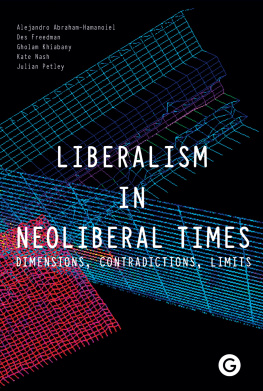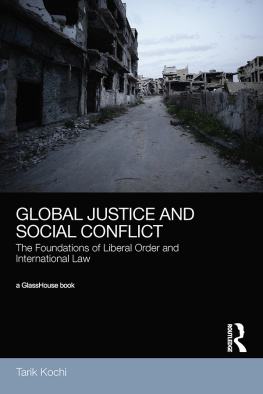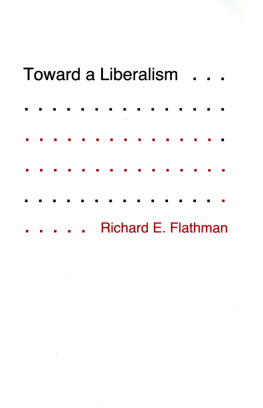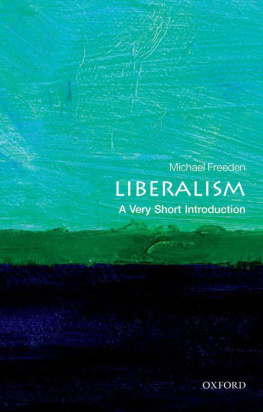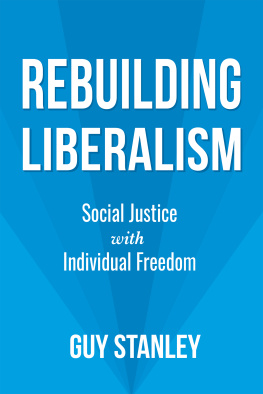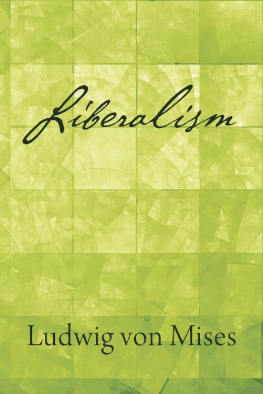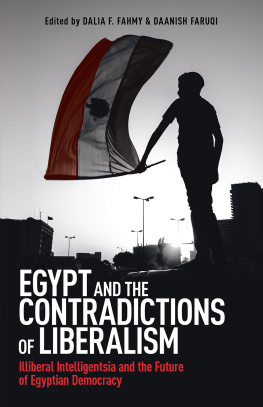Alejandro Abraham-Hamanoiel (editor) - Liberalism in Neoliberal Times: Dimensions, Contradictions, Limits (Goldsmiths Press)
Here you can read online Alejandro Abraham-Hamanoiel (editor) - Liberalism in Neoliberal Times: Dimensions, Contradictions, Limits (Goldsmiths Press) full text of the book (entire story) in english for free. Download pdf and epub, get meaning, cover and reviews about this ebook. year: 2017, publisher: Goldsmiths Press, genre: Politics. Description of the work, (preface) as well as reviews are available. Best literature library LitArk.com created for fans of good reading and offers a wide selection of genres:
Romance novel
Science fiction
Adventure
Detective
Science
History
Home and family
Prose
Art
Politics
Computer
Non-fiction
Religion
Business
Children
Humor
Choose a favorite category and find really read worthwhile books. Enjoy immersion in the world of imagination, feel the emotions of the characters or learn something new for yourself, make an fascinating discovery.
- Book:Liberalism in Neoliberal Times: Dimensions, Contradictions, Limits (Goldsmiths Press)
- Author:
- Publisher:Goldsmiths Press
- Genre:
- Year:2017
- Rating:3 / 5
- Favourites:Add to favourites
- Your mark:
Liberalism in Neoliberal Times: Dimensions, Contradictions, Limits (Goldsmiths Press): summary, description and annotation
We offer to read an annotation, description, summary or preface (depends on what the author of the book "Liberalism in Neoliberal Times: Dimensions, Contradictions, Limits (Goldsmiths Press)" wrote himself). If you haven't found the necessary information about the book — write in the comments, we will try to find it.
What does it mean to be a liberal in neoliberal times? This collection of short essays attempts to show how liberals and the wider concept of liberalism remain relevant in what many perceive to be a highly illiberal age. Liberalism in the broader sense revolves around tolerance, progress, humanitarianism, objectivity, reason, democracy, and human rights. Liberalisms emphasis on individual rights opened a theoretical pathway to neoliberalism, through private property, a classically minimal liberal state, and the efficiency of free markets. In practice, neoliberalism is associated less with the economic deregulation championed by its advocates than the re-regulation of the economy to protect financial capital. Liberalism in Neoliberal Times engages with the theories, histories, practices, and contradictions of liberalism, viewing it in relation to four central areas of public life: human rights, ethnicity and gender, education, and the media. The contributors explore the transformations in as well as the transformative aspects of liberalism and highlight both its liberating and limiting capacities.
The book contends that liberalismin all its formscontinues to underpin specific institutions such as the university, the free press, the courts, and, of course, parliamentary democracy. Liberal ideas are regularly mobilized in areas such as counterterrorism, minority rights, privacy, and the pursuit of knowledge. This book contends that while we may not agree on much, we can certainly agree that an understanding of liberalism and its emancipatory capacity is simply too important to be left to the liberals
Contributors
Alejandro Abraham-Hamanoiel, Patrick Ainley, Abdullahi An-Naim, Michael Bailey, Haim Bresheeth, Baak al, David Chandler, William Davies, Costas Douzinas, Natalie Fenton, Des Freedman, Roberto Gargarella, Priyamvada Gopal, Jonathan Hardy, John Holmwood, Ratna Kapur, Gholam Khiabany, Ray Kiely, Monika Krause, Deepa Kumar, Arun Kundnani, Colin Leys, Howard Littler, Kathleen Lynch, Robert W. McChesney, Nivedita Menon, Toby Miller, Kate Nash, Joan Pedro-Caraana, Julian Petley, Anne Phillips, Jonathan Rosenhead, Annabelle Sreberny, John Steel, Michael Wayne, Milly Williamson
Alejandro Abraham-Hamanoiel (editor): author's other books
Who wrote Liberalism in Neoliberal Times: Dimensions, Contradictions, Limits (Goldsmiths Press)? Find out the surname, the name of the author of the book and a list of all author's works by series.

